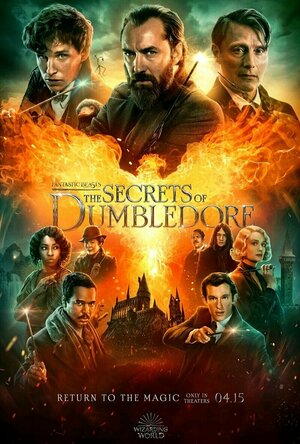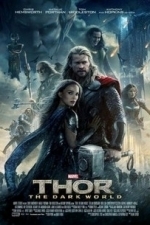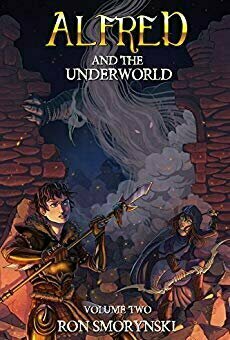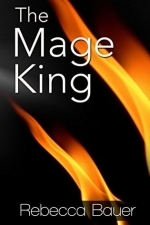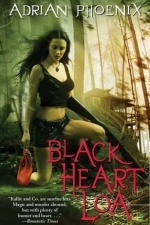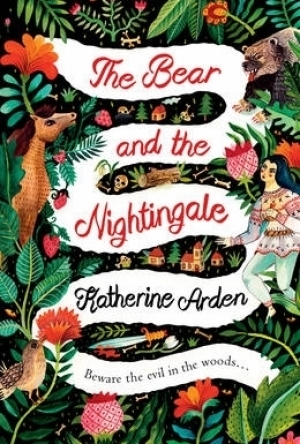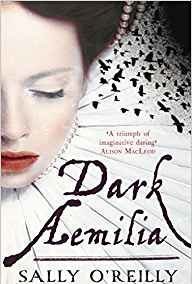Search
Search results
BankofMarquis (1832 KP) rated Fantastic Beasts: The Secrets of Dumbledore (2022) in Movies
Apr 30, 2022
The Magic is Fading
Alas, the magic is fading in the Wizarding World
The 3rd installment of the Fantastic Beasts saga, THE SECRETS OF DUMBLEDORE is satisfying enough for fans of the ongoing Wizarding World of Harry Potter universe and will be time well spent for those of you that have watched all 8 Harry Potter films and the first 2 FANTASTIC BEASTS films, but it is nothing…magical.
Picking up where the 2nd film (THE CRIMES OF GRINDEWALD) left off, the arch-nemesis of Dumbledore (a game Jude Law) is in power and looking to start a war with the Muggles (non-magic folk). A ragtag group of heroes (are there any other kind) led by Newt Scamander (Eddie Redmayne) are humanity’s only hope.
And…while this worked well in the first series of film…this setup falls rather flat as it has a “been there done that” feel to it that is not really elevated above the ordinary.
The reason are numerous:
First, Newt Scamander is no Harry Potter. While Eddie Redymayne plays an interesting, quirky, central character - a character who’s unique skills were needed to defeat the bad guy in the first film - he is, really, a secondary character, yet he is the one we follow throughout the film. Kind of like watching the Harry Potter films through the eyes of Neville Longbottom.
Secondly, Grindewald (this time played by Mads Mikkelsen, replacing Johnny Depp) is no Voldemort. Grindewald was an interesting character set up in the first film, but by this film, he is pretty bland (and pretty blandly played by Mikkeslen who is, frankly, miscast).
Thirdly, Dumbledore (Jude Law in a very good performance, one that needed to be larger and more central) is sidelined for most of this film - a film about the battle between Grindewald and Dumbledore, a stumble (plotwise) to be sure in an awkward attempt to keeping the Newt Scamander character front and center.
Fortunately, the supporting cast is strong from Dan Fogler’s muggle, Jacob Kowalski to his love, Queenie (Alison Sudol) to Newt’s brother, Theseus (Callum Turner) to Newt’s assistant Bunty (Victoria Yeates) to Dumbledore’s brother, Aberforth (Richard Coyle) - all have their moments and are interesting (enough) to watch.
Unfortunately, Ezra Miller’s conflicted villain, Credence is poorly written with a crescendo to his character that lands with a thud. And, the inexplicable reason that Katherine Waterston’s main character of Tina is sidelined (rumors are she conflicted with J.K. Rowling) just doesn’t land, so, consequently, 2 major pieces from the first 2 films just don’t work.
What does work in this film is the magical sequences, as handled by Harry Potter veteran David Yates (who has now helmed 6 films in the Wizarding World franchise), the magical scenes are truly…magical. They are fun to watch and the real reason to watch this film, but the story is weak with a misguided viewpoint character that diminishes the fantasy for all.
Rumors are that this was supposed to be a 5 film franchise, but with box office diminishing for each successive Fantastic Beasts films, the filmmakers wisely decided to wrap up most storylines in this film.
It’s time to say goodbye to FANTASTIC BEASTS, but it should be time for the Wizarding World to go the way of Star Wars, Marvel and Star Trek - streaming TV series that breathes new life - and new, interesting characters - to a sagging franchise.
In the meantime, FANTASTIC BEASTS: THE SECRETS OF DUMBLEDORE is “good enough” and since it is all we have at the moment, it will have to do.
Letter Grade: B
7 stars (out of 10) - and you can take that to the Bank(ofMarquis)
The 3rd installment of the Fantastic Beasts saga, THE SECRETS OF DUMBLEDORE is satisfying enough for fans of the ongoing Wizarding World of Harry Potter universe and will be time well spent for those of you that have watched all 8 Harry Potter films and the first 2 FANTASTIC BEASTS films, but it is nothing…magical.
Picking up where the 2nd film (THE CRIMES OF GRINDEWALD) left off, the arch-nemesis of Dumbledore (a game Jude Law) is in power and looking to start a war with the Muggles (non-magic folk). A ragtag group of heroes (are there any other kind) led by Newt Scamander (Eddie Redmayne) are humanity’s only hope.
And…while this worked well in the first series of film…this setup falls rather flat as it has a “been there done that” feel to it that is not really elevated above the ordinary.
The reason are numerous:
First, Newt Scamander is no Harry Potter. While Eddie Redymayne plays an interesting, quirky, central character - a character who’s unique skills were needed to defeat the bad guy in the first film - he is, really, a secondary character, yet he is the one we follow throughout the film. Kind of like watching the Harry Potter films through the eyes of Neville Longbottom.
Secondly, Grindewald (this time played by Mads Mikkelsen, replacing Johnny Depp) is no Voldemort. Grindewald was an interesting character set up in the first film, but by this film, he is pretty bland (and pretty blandly played by Mikkeslen who is, frankly, miscast).
Thirdly, Dumbledore (Jude Law in a very good performance, one that needed to be larger and more central) is sidelined for most of this film - a film about the battle between Grindewald and Dumbledore, a stumble (plotwise) to be sure in an awkward attempt to keeping the Newt Scamander character front and center.
Fortunately, the supporting cast is strong from Dan Fogler’s muggle, Jacob Kowalski to his love, Queenie (Alison Sudol) to Newt’s brother, Theseus (Callum Turner) to Newt’s assistant Bunty (Victoria Yeates) to Dumbledore’s brother, Aberforth (Richard Coyle) - all have their moments and are interesting (enough) to watch.
Unfortunately, Ezra Miller’s conflicted villain, Credence is poorly written with a crescendo to his character that lands with a thud. And, the inexplicable reason that Katherine Waterston’s main character of Tina is sidelined (rumors are she conflicted with J.K. Rowling) just doesn’t land, so, consequently, 2 major pieces from the first 2 films just don’t work.
What does work in this film is the magical sequences, as handled by Harry Potter veteran David Yates (who has now helmed 6 films in the Wizarding World franchise), the magical scenes are truly…magical. They are fun to watch and the real reason to watch this film, but the story is weak with a misguided viewpoint character that diminishes the fantasy for all.
Rumors are that this was supposed to be a 5 film franchise, but with box office diminishing for each successive Fantastic Beasts films, the filmmakers wisely decided to wrap up most storylines in this film.
It’s time to say goodbye to FANTASTIC BEASTS, but it should be time for the Wizarding World to go the way of Star Wars, Marvel and Star Trek - streaming TV series that breathes new life - and new, interesting characters - to a sagging franchise.
In the meantime, FANTASTIC BEASTS: THE SECRETS OF DUMBLEDORE is “good enough” and since it is all we have at the moment, it will have to do.
Letter Grade: B
7 stars (out of 10) - and you can take that to the Bank(ofMarquis)
Gareth von Kallenbach (980 KP) rated Charlie and the Chocolate Factory (2005) in Movies
Aug 14, 2019
It seems of late that every month Hollywood either releases or plans to release a remake of a classic film. This summer has spawned no less than 5 remakes of classic films or televisions shows and with box office receipts in decline, it would seem that the public is craving for something fresh.
Thankfully the Tim Burton remake of Charlie and the Chocolate Factory is not only a winner, but injects a much needed jolt of camp, charm, and wit into a late summer season that desperately needed it.
The film stars Johnny Depp as the mysterious candy maker Willie Wonka. Wonka has become a reclusive for two decades in order to protect his secret recipes from corporate spies and thieves.
As the film opens, a young boy named Charlie Bucket, (Freddie Highmore), returns home to his family shack, which he shares with his parents and four grandparents. As told via narration, that despite the poverty of his family, Charlie is a very lucky boy. Over their meager dinner of cabbage soup, Charlie’s grandfather (David Kelly) regales the family with tales of Willie Wonka and his exploits which he saw first hand while working in the factory decades earlier.
When Wonka resumed candy shipments after a hiatus the world was delighted, but many wondered who was making the candy as aside from shipping trucks, nobody was ever seen coming or going from the factory.
Such secrecy only added to the legend of Wonka as amazing candy creations continued to arrive in shops to the delight of customer’s world wide.
When it is announced that five golden tickets have been hidden inside candy bars world wide, and that the winners will be given a full day tour of the factory by Wonka himself, frenzy erupts across the globe as Wonka Bars are snatched up by a rabid public. Charlie dreams of getting one of the precious tickets, but his family’s meager income limits him to one bar a year on his birthday. Undaunted Charlie counts the days until his coming birthday, undaunted by the discovery of tickets around the globe.
When his efforts to get a ticket are daunted, and the fifth ticket is reported to be found, Charlie consoles himself by finding money in the street and purchases a Wonka Bar from the corner store. In the blink of an eye Charlie finds himself holding the last ticket when he learns that the last one reported found was a hoax.
Soon Charlie and his Grandfather are touring the magical factory complete with rivers of chocolate and edible candy forests in the company of the quirky Wonka and the fellow contest winners. What follows next is not going to be much of a surprise for those who have seen the 1971 version starring Gene Wilder or those who have read the novel by Roald Dahl, what is a surprise is how fresh and spirited this new version is. I was utterly charmed by the story and the effective pacing of the film.
Burton is a master of mixing visuals and fantasy and this time he not only excels, but he adds an effective touch of humanity to the fantasy which keeps the film from being lost in a see of color and effects.
Depp is brilliant as the eccentric Wonka as his mirth and camp, is underscored by equal amounts of fear and mistrust. The film is essentially a morality tale, but it never losses its focus or the charm by becoming preachy or drawn out. In a role that could easily have been mishandled, Depp soars and shows that he is one of the greatest actors of our generation.
Parents should note that there are a few moments in the film that may be a bit intense for the youngest of viewers, but that being said, the film is a true delight full of magic and fantasy that will delight young and old.
Thankfully the Tim Burton remake of Charlie and the Chocolate Factory is not only a winner, but injects a much needed jolt of camp, charm, and wit into a late summer season that desperately needed it.
The film stars Johnny Depp as the mysterious candy maker Willie Wonka. Wonka has become a reclusive for two decades in order to protect his secret recipes from corporate spies and thieves.
As the film opens, a young boy named Charlie Bucket, (Freddie Highmore), returns home to his family shack, which he shares with his parents and four grandparents. As told via narration, that despite the poverty of his family, Charlie is a very lucky boy. Over their meager dinner of cabbage soup, Charlie’s grandfather (David Kelly) regales the family with tales of Willie Wonka and his exploits which he saw first hand while working in the factory decades earlier.
When Wonka resumed candy shipments after a hiatus the world was delighted, but many wondered who was making the candy as aside from shipping trucks, nobody was ever seen coming or going from the factory.
Such secrecy only added to the legend of Wonka as amazing candy creations continued to arrive in shops to the delight of customer’s world wide.
When it is announced that five golden tickets have been hidden inside candy bars world wide, and that the winners will be given a full day tour of the factory by Wonka himself, frenzy erupts across the globe as Wonka Bars are snatched up by a rabid public. Charlie dreams of getting one of the precious tickets, but his family’s meager income limits him to one bar a year on his birthday. Undaunted Charlie counts the days until his coming birthday, undaunted by the discovery of tickets around the globe.
When his efforts to get a ticket are daunted, and the fifth ticket is reported to be found, Charlie consoles himself by finding money in the street and purchases a Wonka Bar from the corner store. In the blink of an eye Charlie finds himself holding the last ticket when he learns that the last one reported found was a hoax.
Soon Charlie and his Grandfather are touring the magical factory complete with rivers of chocolate and edible candy forests in the company of the quirky Wonka and the fellow contest winners. What follows next is not going to be much of a surprise for those who have seen the 1971 version starring Gene Wilder or those who have read the novel by Roald Dahl, what is a surprise is how fresh and spirited this new version is. I was utterly charmed by the story and the effective pacing of the film.
Burton is a master of mixing visuals and fantasy and this time he not only excels, but he adds an effective touch of humanity to the fantasy which keeps the film from being lost in a see of color and effects.
Depp is brilliant as the eccentric Wonka as his mirth and camp, is underscored by equal amounts of fear and mistrust. The film is essentially a morality tale, but it never losses its focus or the charm by becoming preachy or drawn out. In a role that could easily have been mishandled, Depp soars and shows that he is one of the greatest actors of our generation.
Parents should note that there are a few moments in the film that may be a bit intense for the youngest of viewers, but that being said, the film is a true delight full of magic and fantasy that will delight young and old.
Darren (1599 KP) rated Thor: The Dark World (2013) in Movies
Jul 25, 2019
Story: Thor: The Dark World starts as Thor (Hemsworth) must restore the power in Asgard after Loki’s (Hiddleston) actions, this has made him in the position he should be, waiting to take over his father Odin’s (Hopkins) role. Meanwhile on Earth Jane (Portman) is trying to move with her life, but in London she discovers an unusual series of events which ends up taking her to Elf world.
When Jane becomes cursed, Thor takes her to Asgard to find a cure, which gives Malekith (Eccleston) a chance to lead his army back into combat so he can return the universe back to darkness. Thor must turn to Loki t help him defeat Malekith and save the universe.
Thoughts on Thor: The Dark World
Characters – Thor is once again preparing to take his throne in Asgard, he has restored faith in the nine realms, but he still misses Jane. When she becomes cursed, he returns to Earth to save her, which only brings back an ancient enemy to the Asgardians in the Dark Elves, he must disobey his father once again to end the threat and save the woman he loves. Jane is trying to get on with her life now, her research has taken her to London where she is trying to get over Thor, her investigation sees her cursed and taken to Asgard to learn about Thor’s home world. Loki is locked up for his actions, after his mother is murdered, Thor turns to him for help to get vengeance. Malekith is the leader of the Dark Elves, he has waited for his chance to bring the universe into darkness once again, killing Frigga the mother of Thor.
Performances – Chris Hemsworth continues to make Thor one of the most entertaining character in the universe. Natalie Portman was known to not be interested in being in the film, it does show in her performance which does disappoint. Tom Hiddleston brings another dimension to his character here which is only going to make him a more loved character. Christopher Eccleston does give us a basic villain, one that is only after power and is mostly under make up, making his performance harder to judge.
Story – The story here follows Thor on his latest adventure, one where he must face an ancient enemy who wants to put the universe into darkness, while finally returning to Jane who has become cursed by the Dark Elves magic. This is another sequel that does address the previous films in the franchise by showing the hints the Thor and Loki could still rebuild their bond even after what Loki has done, we address forbidden relationships between Thor and Jane, have a villain that is obsessed with power, though isn’t the most three-dimensional and see Thor needing to learn more about his responsibilities as a potential king. This is everything you would expect a sequel to be in this universe.
Action/Fantasy – The action involved in this film is mostly big CGI chases sequences between spacecrafts, we do get Thor doing the hammer routine which works well enough for the film. the fantasy side of the film continues to build on the idea that the worlds above have been fighting longer than people could imagine with fresh enemies waiting in the shadows.
Settings – The film uses Asgard, the home world of the Dark Elves and London as the main settings, each has its own action sequences which also shows what Thor is fighting for.
Special Effects – The effects are not as strong as previous films, but we do get some very impressive scenes none the less, the certain moments of weakness do hold the marks up though,
Scene of the Movie – London battle.
That Moment That Annoyed Me – The villain isn’t as interesting as previous ones.
Final Thoughts – This is still an entertaining sequel, it might not be as strong as some of the previous films, but it entertains throughout.
Overall: Fantasy Filled Sequel.
When Jane becomes cursed, Thor takes her to Asgard to find a cure, which gives Malekith (Eccleston) a chance to lead his army back into combat so he can return the universe back to darkness. Thor must turn to Loki t help him defeat Malekith and save the universe.
Thoughts on Thor: The Dark World
Characters – Thor is once again preparing to take his throne in Asgard, he has restored faith in the nine realms, but he still misses Jane. When she becomes cursed, he returns to Earth to save her, which only brings back an ancient enemy to the Asgardians in the Dark Elves, he must disobey his father once again to end the threat and save the woman he loves. Jane is trying to get on with her life now, her research has taken her to London where she is trying to get over Thor, her investigation sees her cursed and taken to Asgard to learn about Thor’s home world. Loki is locked up for his actions, after his mother is murdered, Thor turns to him for help to get vengeance. Malekith is the leader of the Dark Elves, he has waited for his chance to bring the universe into darkness once again, killing Frigga the mother of Thor.
Performances – Chris Hemsworth continues to make Thor one of the most entertaining character in the universe. Natalie Portman was known to not be interested in being in the film, it does show in her performance which does disappoint. Tom Hiddleston brings another dimension to his character here which is only going to make him a more loved character. Christopher Eccleston does give us a basic villain, one that is only after power and is mostly under make up, making his performance harder to judge.
Story – The story here follows Thor on his latest adventure, one where he must face an ancient enemy who wants to put the universe into darkness, while finally returning to Jane who has become cursed by the Dark Elves magic. This is another sequel that does address the previous films in the franchise by showing the hints the Thor and Loki could still rebuild their bond even after what Loki has done, we address forbidden relationships between Thor and Jane, have a villain that is obsessed with power, though isn’t the most three-dimensional and see Thor needing to learn more about his responsibilities as a potential king. This is everything you would expect a sequel to be in this universe.
Action/Fantasy – The action involved in this film is mostly big CGI chases sequences between spacecrafts, we do get Thor doing the hammer routine which works well enough for the film. the fantasy side of the film continues to build on the idea that the worlds above have been fighting longer than people could imagine with fresh enemies waiting in the shadows.
Settings – The film uses Asgard, the home world of the Dark Elves and London as the main settings, each has its own action sequences which also shows what Thor is fighting for.
Special Effects – The effects are not as strong as previous films, but we do get some very impressive scenes none the less, the certain moments of weakness do hold the marks up though,
Scene of the Movie – London battle.
That Moment That Annoyed Me – The villain isn’t as interesting as previous ones.
Final Thoughts – This is still an entertaining sequel, it might not be as strong as some of the previous films, but it entertains throughout.
Overall: Fantasy Filled Sequel.
EmersonRose (320 KP) rated Alfred: And The Underworld in Books
Nov 20, 2019
“Yes Alfred, that is it. I love you. I love you so much. And I am worried. I, we, your father and I, and even Tirnalth – we chose this life for you. We fled for you. A great magic was unleashed to help us, for you Alfred. It helped us escape a world fallen to darkness”
Alfred and the Underworld is the second volume of Alfred: The Boy King series by author Ron Smorynski. Published on November 2017, this book continues Alfred’s journey as the King of Westfold. After spending some time back with his mother in the human world researching and preparing, he goes back to his people. Things are not going well, and Alfred has a lot of work to do to help his people get back on their feet and defend themselves from the darkness that surrounds them.
In this book, Smorynski continues not only with this adventure-filled story but has continued to build up his fantasy world. Alfred encounters several new magical creatures, both good and bad around his kingdom. We also get a further building of the magical system and who has access to magic, which adds to the world and what is possible within it. Another interesting aspect was the history and politics that took a forefront position in this book. We are given a better grasp of the world outside of Alfred’s little kingdom. There are more players in the game now some that could be allies and some that have allied themselves with the evil in the land.
I really enjoyed that in this book we get to see different perspectives. While mostly told from Alfred’s point of view, we also get sneak peaks into both his mother’s mind and the enemies Alfred, and his people are fighting. This was interesting because these other characters are privy to information Alfred does not have access to and helps build the intrigue of the story. I particularly liked the chapters focused on Alfred’s mother. Through the excitement of Alfred building up his kingdom and the thrill of preparing for battle and defeating enemies, the mother is a reminder of a big picture and a deeper mystery. Throughout the first book we were given pieces of the life that she left behind when she brought Alfred to our world, and slowly those pieces are coming together.
I greatly enjoyed this book and am excited about the third book in the series Alfred and the Quest of the Knights. Alfred and the Underworld was an exciting, fun, and interesting story on its own, but it also set up nicely for the next installment. Between the big bad that is Gorbogal the witch and the truth bomb that was dropped on Alfred in the last sentence as a cliffhanger, this book as left me desperately waiting for more.
Alfred and the Underworld is the second volume of Alfred: The Boy King series by author Ron Smorynski. Published on November 2017, this book continues Alfred’s journey as the King of Westfold. After spending some time back with his mother in the human world researching and preparing, he goes back to his people. Things are not going well, and Alfred has a lot of work to do to help his people get back on their feet and defend themselves from the darkness that surrounds them.
In this book, Smorynski continues not only with this adventure-filled story but has continued to build up his fantasy world. Alfred encounters several new magical creatures, both good and bad around his kingdom. We also get a further building of the magical system and who has access to magic, which adds to the world and what is possible within it. Another interesting aspect was the history and politics that took a forefront position in this book. We are given a better grasp of the world outside of Alfred’s little kingdom. There are more players in the game now some that could be allies and some that have allied themselves with the evil in the land.
I really enjoyed that in this book we get to see different perspectives. While mostly told from Alfred’s point of view, we also get sneak peaks into both his mother’s mind and the enemies Alfred, and his people are fighting. This was interesting because these other characters are privy to information Alfred does not have access to and helps build the intrigue of the story. I particularly liked the chapters focused on Alfred’s mother. Through the excitement of Alfred building up his kingdom and the thrill of preparing for battle and defeating enemies, the mother is a reminder of a big picture and a deeper mystery. Throughout the first book we were given pieces of the life that she left behind when she brought Alfred to our world, and slowly those pieces are coming together.
I greatly enjoyed this book and am excited about the third book in the series Alfred and the Quest of the Knights. Alfred and the Underworld was an exciting, fun, and interesting story on its own, but it also set up nicely for the next installment. Between the big bad that is Gorbogal the witch and the truth bomb that was dropped on Alfred in the last sentence as a cliffhanger, this book as left me desperately waiting for more.
Autumn (430 KP) rated A Plague of Giants in Books
Nov 18, 2017 (Updated Nov 18, 2017)
The world building (2 more)
The kennings
Abhinava Khose, Murr, and Eep
I received an ARC at no cost through a giveaway hosted by the author and/or publisher.
What I liked: Wow, Hearne has really created a whole new world in this series. I can't imagine the time it took to come up with several nations, kennings, and all the culture behind each. I was impressed. The kennings are interesting and somewhat horrifying. It would be amazing to do any of the things the blessed are able to do, but the fact that you age and use up your life span if you push your kenning too hard is horrifying and almost not worth it, in my opinion. The creatures in this book are scary and I would not want to live in a world where they exist. However, they really added to the world building, especially once the 6th kenning is found. Abhinava Khose was probably my favorite character, largely due to the fact that he can control and communicate with animals. I found myself sucked in any time the bard delivered a piece of his story. I love books that switch perspectives, and this was definitely a new way of doing it. I liked the way it was written for the most part.
What I didn't like: I will say that it took some time to grab my attention, but that may be because I don't usually read high fantasy. It took me a while to read this book and at one point I didn't know if I would continue. However, I am glad I stuck it out because it picked up and I became invested in the story.
Overall, I enjoyed this book. It took some time for me to get into it, but I am glad I finished it. I think the author has built an interesting world full of magic and war and I will definitely pick up the next book in this series.
What I liked: Wow, Hearne has really created a whole new world in this series. I can't imagine the time it took to come up with several nations, kennings, and all the culture behind each. I was impressed. The kennings are interesting and somewhat horrifying. It would be amazing to do any of the things the blessed are able to do, but the fact that you age and use up your life span if you push your kenning too hard is horrifying and almost not worth it, in my opinion. The creatures in this book are scary and I would not want to live in a world where they exist. However, they really added to the world building, especially once the 6th kenning is found. Abhinava Khose was probably my favorite character, largely due to the fact that he can control and communicate with animals. I found myself sucked in any time the bard delivered a piece of his story. I love books that switch perspectives, and this was definitely a new way of doing it. I liked the way it was written for the most part.
What I didn't like: I will say that it took some time to grab my attention, but that may be because I don't usually read high fantasy. It took me a while to read this book and at one point I didn't know if I would continue. However, I am glad I stuck it out because it picked up and I became invested in the story.
Overall, I enjoyed this book. It took some time for me to get into it, but I am glad I finished it. I think the author has built an interesting world full of magic and war and I will definitely pick up the next book in this series.
Merissa (13742 KP) rated The Mage King (The Ice Queen #2) in Books
Jul 21, 2017
The Mage King (The Ice Queen #2) by Rebecca Bauer
The Mage King is the second book in The Ice Queen series, and we return to see what Aria and Cas are up to, two years after we last saw them. They are now proud parents of Elena, although Cas seems to have taken to it a bit easier than Aria has done. They have worked hard for peace, but it seems like the mages are up to their tricks again. Not only that, but the magic of the mages seems to be failing. It becomes apparent that those who are not having problems (like Cas) may have a different blood line than others. Not only that, but King Liam from the west is making his way eastwards, and no one is quite sure why.
So much happens in this book, and yet it is easy to follow and is not unnecessarily complicated. Aria and Cas continue to go from strength to strength, no matter what is thrown at them. Their love and trust in each other is a strength that others just don't understand, and yet I adore it! They are not saccharine sweet, one of the things I love about Aria is her razor-sharp tongue, but are unfailing honest and loyal although they both play the deception/political game with style and finesse.
I refuse to give out any spoilers about this book. Trust me, you will want to immerse yourself in the Ice Realm, along with the other places, just like you did with The Ice Queen. I will say that there were no editing or grammatical errors that disrupted my reading flow. Once again, this is an exceptional adult fantasy that I highly recommend.
* A copy of this book was provided to me with no requirements for a review. I voluntarily read this book, and my comments here are my honest opinion. *
Merissa
Archaeolibrarian - I Dig Good Books!
So much happens in this book, and yet it is easy to follow and is not unnecessarily complicated. Aria and Cas continue to go from strength to strength, no matter what is thrown at them. Their love and trust in each other is a strength that others just don't understand, and yet I adore it! They are not saccharine sweet, one of the things I love about Aria is her razor-sharp tongue, but are unfailing honest and loyal although they both play the deception/political game with style and finesse.
I refuse to give out any spoilers about this book. Trust me, you will want to immerse yourself in the Ice Realm, along with the other places, just like you did with The Ice Queen. I will say that there were no editing or grammatical errors that disrupted my reading flow. Once again, this is an exceptional adult fantasy that I highly recommend.
* A copy of this book was provided to me with no requirements for a review. I voluntarily read this book, and my comments here are my honest opinion. *
Merissa
Archaeolibrarian - I Dig Good Books!
Goddess in the Stacks (553 KP) rated Black Heart Loa in Books
Sep 8, 2017
A rolicking fun ride through Louisiana
Black Heart Loa is actually the second in Phoenix’s Hoodoo series, the first being Black Dust Mambo. Even without reading the first one, Black Heart Loa is easy to follow, and the events of Black Dust Mambo are easily understood, without really having them rehashed to the reader. Part of that, I expect, is because Black Heart Loa is dealing with the fallout of the events of Black Dust Mambo, so things get explained in a natural progression in the book.
BHL was a rolicking fun ride through the swamps of Louisiana. I can’t speak for the accuracy of how the hoodoo belief system is represented, but most religious beliefs in urban fantasy get a vigorous twisting from the author, as miracles and magic become real in the fictional world. So I’m not terribly worried about the accuracy, as long as they’re not portrayed solely in a good or bad light. And in BHL there are both good and bad practitioners of hoodoo, illustrating the point that it’s not the religion that is inherently good or bad, but the person practicing it. So that moral quandary aside, I really, REALLY enjoyed this book. Kallie is a fun, ass-kicking, smart-talking protagonist, though I found myself wanting to know more about her best friend, a mambo-in-training.
I especially want to know more about a character who was introduced late in the book, but the ending of the book implies more books to come, and more focus on the character I’m intrigued by, so I’ll have to see if I can dig up more of this series. Amazon says this book is 2 of 2 in the series, but it was published in 2011 and I don't see any more in the series, which is sad. Goodreads mentions a third book, Black Moon Mojo, but I can't find any news about a release date.
You can find all my reviews at http://goddessinthestacks.wordpress.com
BHL was a rolicking fun ride through the swamps of Louisiana. I can’t speak for the accuracy of how the hoodoo belief system is represented, but most religious beliefs in urban fantasy get a vigorous twisting from the author, as miracles and magic become real in the fictional world. So I’m not terribly worried about the accuracy, as long as they’re not portrayed solely in a good or bad light. And in BHL there are both good and bad practitioners of hoodoo, illustrating the point that it’s not the religion that is inherently good or bad, but the person practicing it. So that moral quandary aside, I really, REALLY enjoyed this book. Kallie is a fun, ass-kicking, smart-talking protagonist, though I found myself wanting to know more about her best friend, a mambo-in-training.
I especially want to know more about a character who was introduced late in the book, but the ending of the book implies more books to come, and more focus on the character I’m intrigued by, so I’ll have to see if I can dig up more of this series. Amazon says this book is 2 of 2 in the series, but it was published in 2011 and I don't see any more in the series, which is sad. Goodreads mentions a third book, Black Moon Mojo, but I can't find any news about a release date.
You can find all my reviews at http://goddessinthestacks.wordpress.com
Cat Goddess Freyja (16 KP) rated The Bear and the Nightingale in Books
Dec 5, 2018
Fantastic Read
Contains spoilers, click to show
I loved reading this book. Since reading it, a few weeks ago, it has become the first book that I recommend to someone looking for a good read. The author has brought her characters alive in a beautiful and alluring way. The story is based in Russia with a country noble's family being the main focus. The story itself, is a mixture of a coming of age story- in which the young main character, Vasya, discovers her place in the world- a fairy tale- a mythical snow demon who can only be calmed by a 'sacrificial' woman, who in turn fights with the snow demon against his evil brother- and a religious historical fiction- there is a strong opposition between Vasya, who believes strongly in the magic and old ways of her village, and a christian priest who comes to 'correct' their pagan beliefs and steer them towards God. There is a touch of romance, but it is not overwhelming and is charming in its own way. The characters come across as natural human beings/ mythical beings, and their choices in the story are logical and works well with whatever conflict they face. My absolute favorite thing that the author, Katherine Arden, did, however was her word choice. Karherine studied Russian in school, and knows quite a bit about its culture and language. A brilliant choice on her part, was recognizing that many of her readers may not be as familiar with the Russian language and culture as she is. So, to keep the feel of Russia alive in her book, she took the time to teach her characters beliefs to the reader, and come up with words that sound close to their Russian counterparts but are easy to pronoun for readers who don't know Russian. This is a very thoughtful fiction book and one I recommend for anyone who wants their imagination to shine.
Marylegs (44 KP) rated Dark Aemilia (UK Edition) in Books
Aug 14, 2019
So I received Dark Aemilia from a Goodreads give away. All I can say is how lucky I was to receive such a good book, that otherwise I likely would not have taken a second glance at. This is a beautifully written piece of historical fiction. Which at its core, is a love story, between Aemilia Bassano and William Shakespeare. How their love blossomed and through many external factors was pulled apart. The book is laid out in acts and scenes like a play and tells the story from Aemilia point of view. I enjoyed being submerged in the Tudor London at the end of Elizabeth I reign. This book completely grabbed me from the start and had I had more free time I am sure I would have read this book in a day or two.
Unfortunately as I havent ever read historical fiction before I dont really have any point of reference for comparison. But what I will say is that I thoroughly enjoyed how realistic this book felt, but still was able to bring in completely fictitious elements of magic and witchcraft. Sam OReilly has managed to bring in these elements, which appealed to my love of fantasy, without being over the top. I particularly enjoyed the time when London was under the grips of the plague and thought it was just so well written and explained. At no point did I feel lost in descriptions, I was there, with Aemilia and that poor woman just couldnt catch a break.
There is mature content it is an adult story of love, so yes there is sex. I personally have no issue with this and believe it to be an integral addition to this story. It is done well and doesnt feel forced or overdone. I am struggling to put into words how much I enjoyed this book, I will read it again and I would recommend it. I will now even consider reading other historical fiction that I had not thought I would enjoy.
Unfortunately as I havent ever read historical fiction before I dont really have any point of reference for comparison. But what I will say is that I thoroughly enjoyed how realistic this book felt, but still was able to bring in completely fictitious elements of magic and witchcraft. Sam OReilly has managed to bring in these elements, which appealed to my love of fantasy, without being over the top. I particularly enjoyed the time when London was under the grips of the plague and thought it was just so well written and explained. At no point did I feel lost in descriptions, I was there, with Aemilia and that poor woman just couldnt catch a break.
There is mature content it is an adult story of love, so yes there is sex. I personally have no issue with this and believe it to be an integral addition to this story. It is done well and doesnt feel forced or overdone. I am struggling to put into words how much I enjoyed this book, I will read it again and I would recommend it. I will now even consider reading other historical fiction that I had not thought I would enjoy.
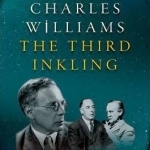
Charles Williams: The Third Inkling
Book
This is the first full biography of Charles Williams (1886-1945), an extraordinary and controversial...
